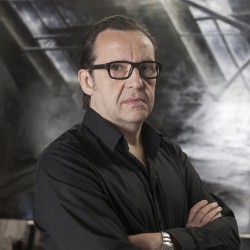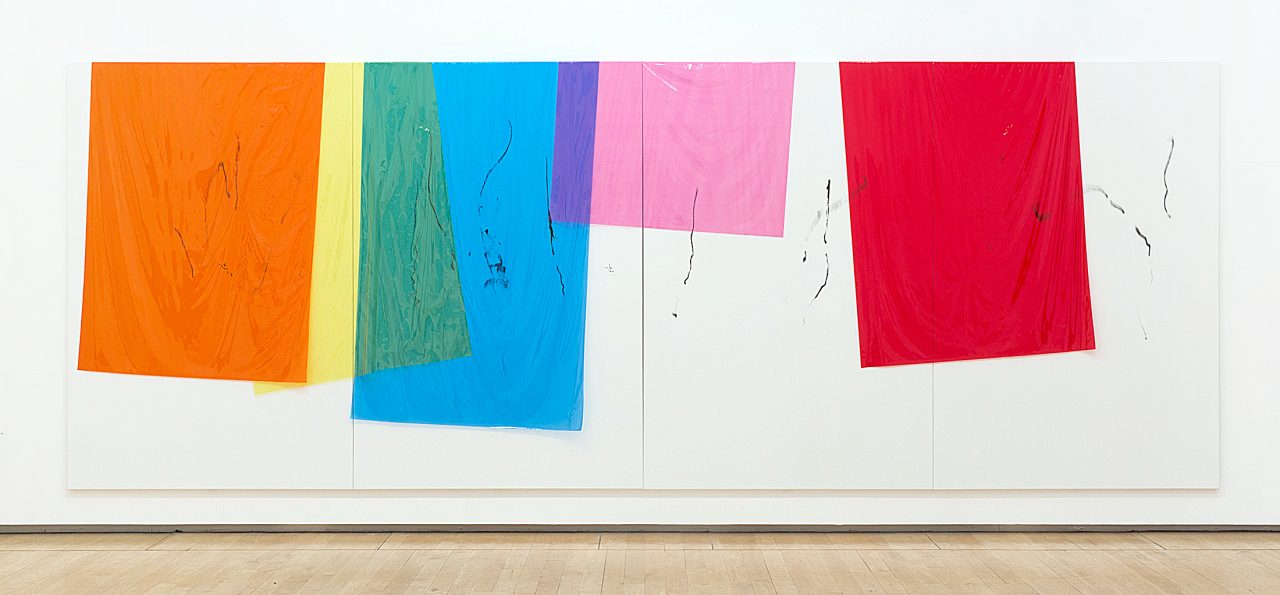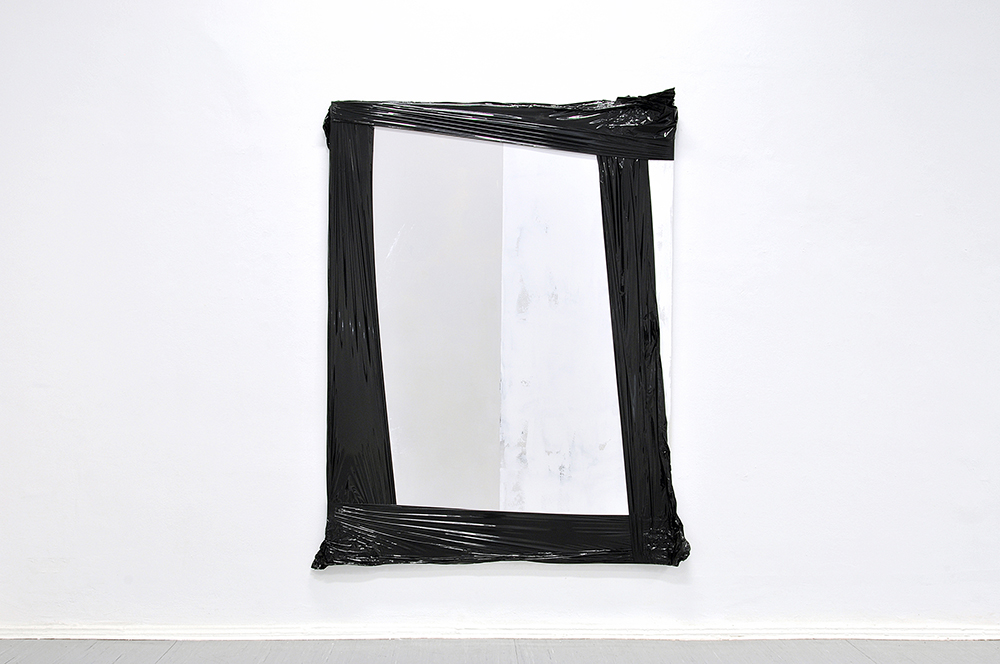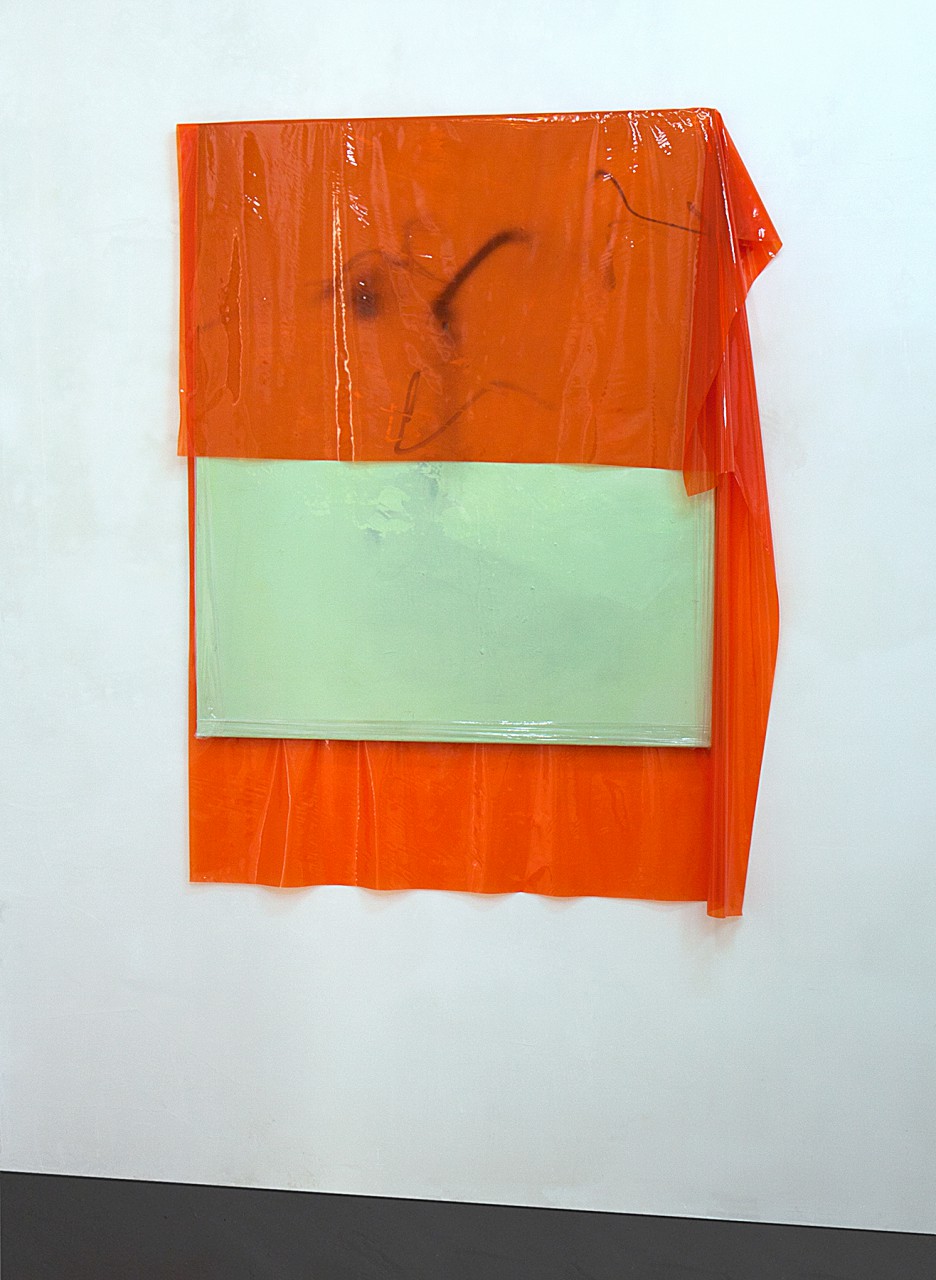
SADOR WEINSčLUCKER
...Page is loading...

Michaela Zimmer
Berlin, Germany
When we look at the painting of Michaela Zimmer it is apparent that there is something visceral tied to the process of viewing. Not only are we aware that her canvases often have materials draped over them, some have plastics stretched and twisted around corners – interfering with the rectangle, but also that the works have a strong relationship to the body. The size and dimensions of the works we notice are corporeal by nature – they link...
Read moreWhen we look at the painting of Michaela Zimmer it is apparent that there is something visceral tied to the process of viewing. Not only are we aware that her canvases often have materials draped over them, some have plastics stretched and twisted around corners – interfering with the rectangle, but also that the works have a strong relationship to the body. The size and dimensions of the works we notice are corporeal by nature – they link to the body, and are directly related to the artists’ own physical constraints, namely her reach.
Elements of performance are utilized to construct her works; continuous painted lines, applied in one stroke, with dashes and reflections that often produce multiple layers and make up a surface that is fluid but also precise. When talking about her painting process Zimmer reflects on her past as a performer and the state ones goes into both mentally and physically when focusing on producing movements or gestures. She uses this energy in the studio as part of the process of creating and often works on many paintings at once.
The corporeal in her work is not necessarily one we are aware of within the dogma of discussing abstraction. Although her paintings are certainly abstract, what is prevalent is how the materiality and mark making invites us to focus on the body of the artist during the creative process: Zimmer presents corporeal meanings that relate to more visceral aspects of the body and the visual language of abstraction. The space the work occupies affects us as a viewer, while the interference from the draped material forces us to move bodily around the work to engage with it. Never appearing quite the same when viewed from different angles, the transient nature of the surface encourages us to react to the work physically, which in a way, reflects the act of making.
Kim Savage
FOLD gallery, London

140802, 240 x 175 cm, acrylic, lacquer, spray paint, flourencent marker, PE film on canvas, 2014, photo: Elmar Vestner

150104; 150 x 115 cm, lacquer, acrylic, spray-paint, PE film on canvas, installationview FOLD gallery, London
What is it about your studio space that inspires you?
24 h access
What sounds, scents and sights do you encounter while in your studio?
at its best: insights
What is your favourite material to work with? How has your use of it evolved throughout your practice?
acrylic, since it allows frequent and fast multi-layering, various PE films, lacquer, spray paint
What are your favourite places besides your studio?
any place with friends
2016
CMYK, FOLD gallery, London, UK
2015
N°1, frontviews temporary at Stuttgarter Platz 2, Berlin, Germany
2013
just in case, Koffer, Berlin, Germany
show all
2016
Perpetual Movement with Goshka Macuga, Katie Paterson and Leila Johnson, Thelowry Manchester, Rambert London
2015
>>movements towards formation<< with Peter Welz, Yorgos Sapountzis, Elena Bajo, Judy Millar, Stella Geppert, Canan Erek, Projektraum Bethanien, Berlin
>>Frequently Asked Questions<<, with Florian Schmidt, Martin Hoener, Ingo Gehrken, Domink Steiner, Sabine Bokelberg u.a. Kunsthalle M3, Berlin, Germany
show all
Collection Heymerader, Berlin, Germany
Collection Timo Miettinen, Helsinki, Finnland
Liverpool Museum, Liverpool, UK
show all
FOLD Gallery, London | http://www.foldgallery.com
being apart, 2001, Hrsg. National Museums and Galleries on Merseyside, British Library Catalogue in Publication data available, ISBN 1-902700-11-2